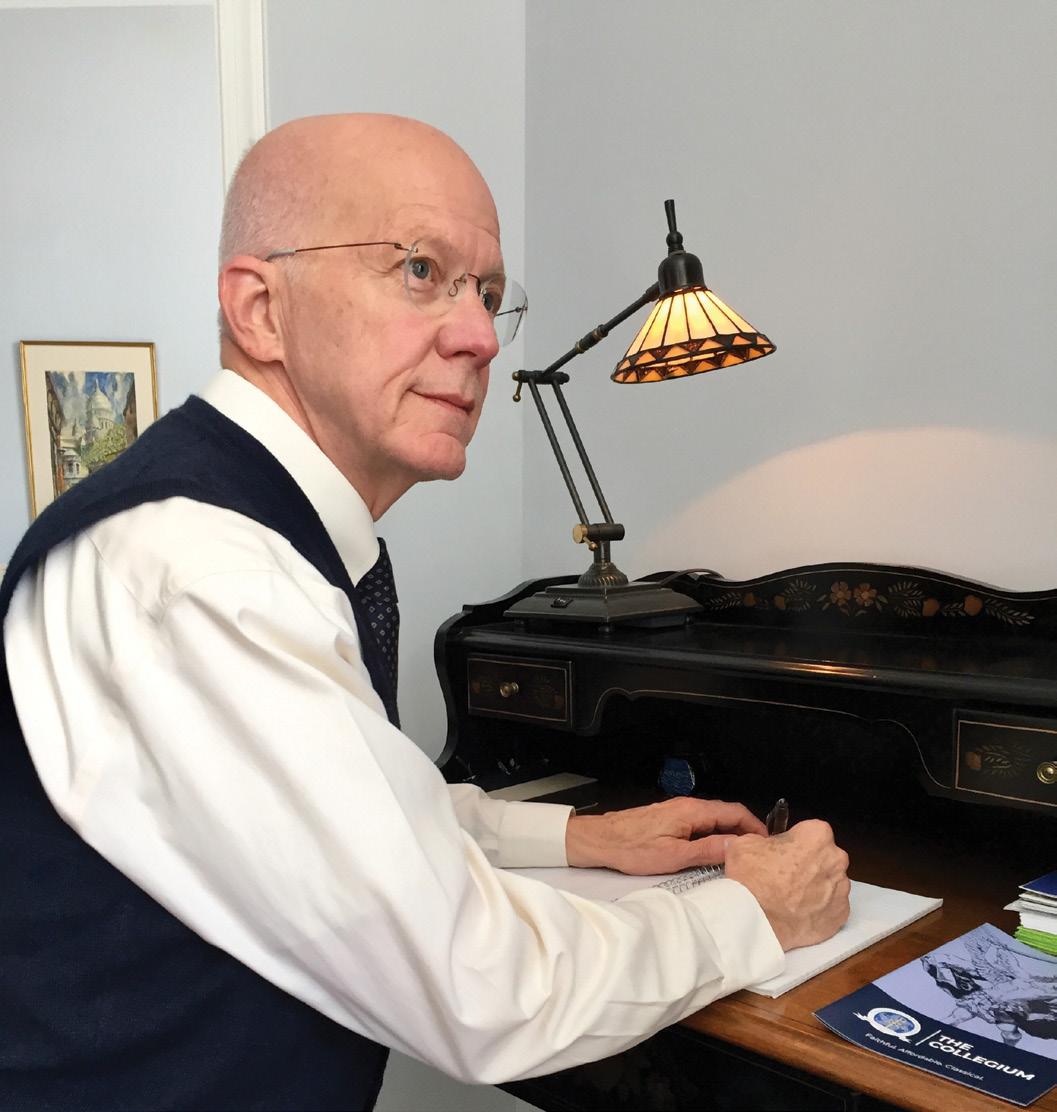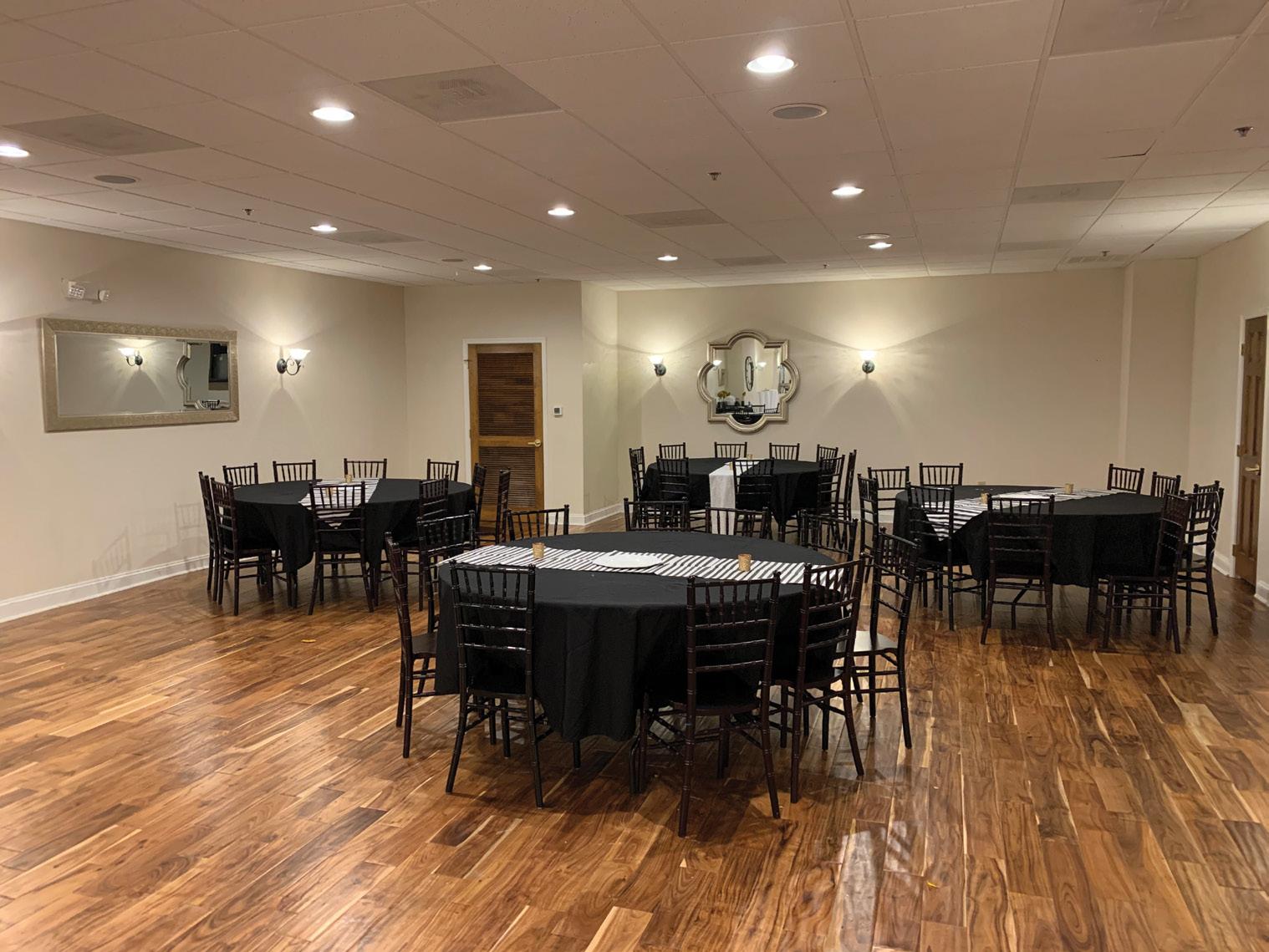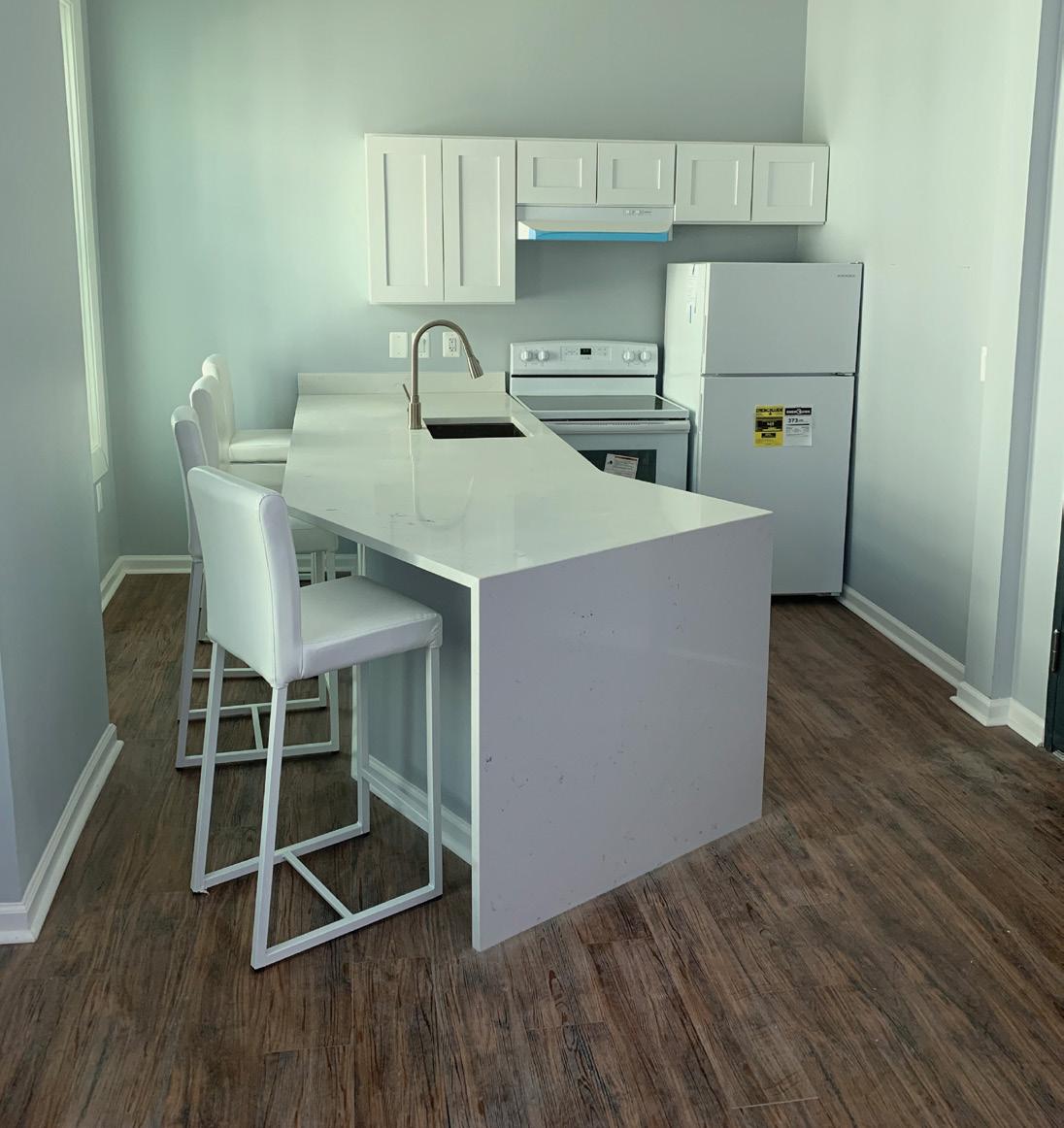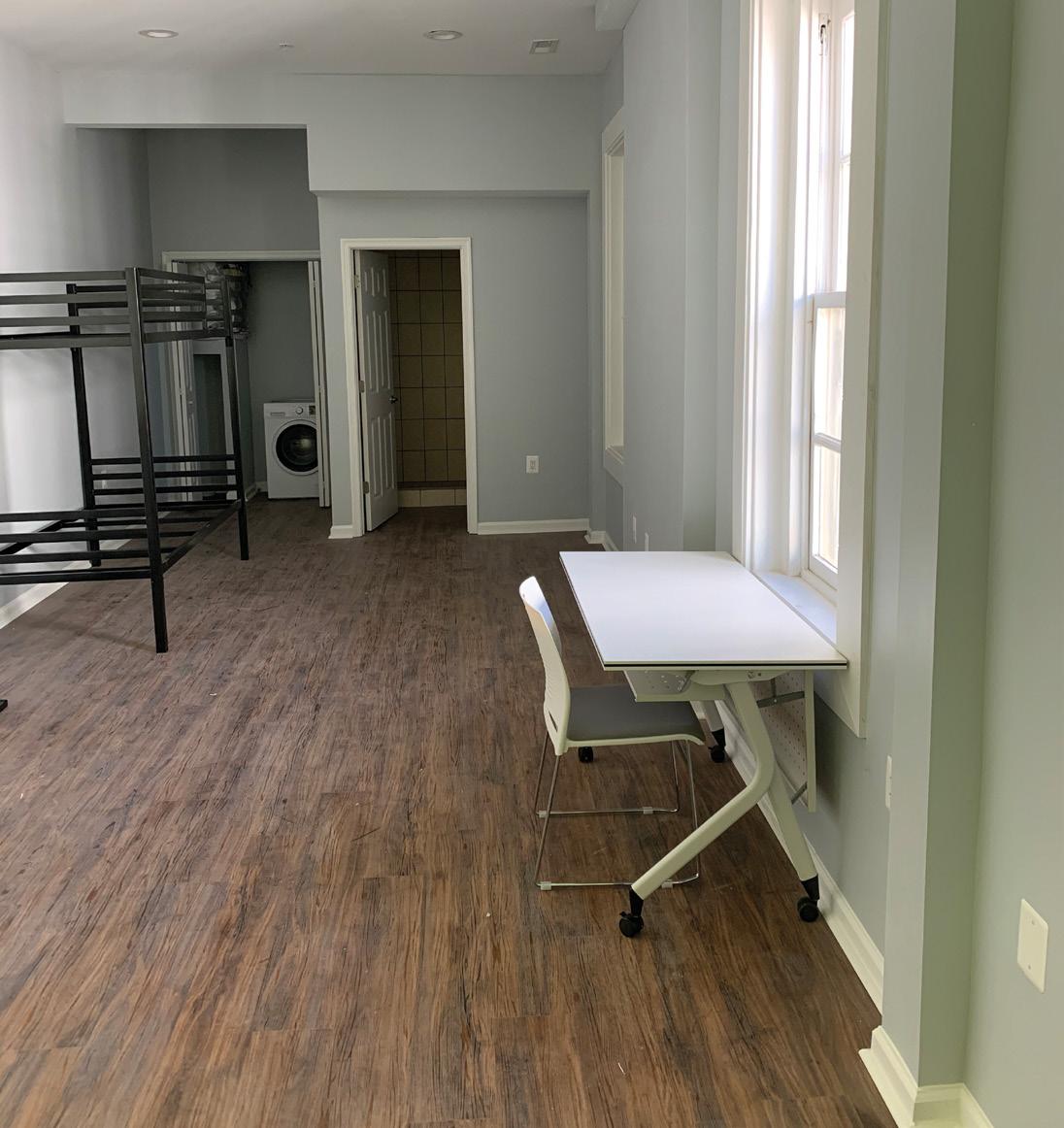
6 minute read
Private, liberal arts college planned for Hagerstown in 2021
‘College of the Holy Angels’ Private, liberal arts college planned for Hagerstown in 2021
Ed Schaefer, president of Collegium, works in the college office, which is located in the Walker House, 36 S. Potomac St., Suite 203, in downtown Hagerstown. Submitted photo
Advertisement

written by LISA TEDRICK PREJEAN
Ed Schaefer has a vision for a private liberal arts college in downtown Hagerstown, and as he walks through the city’s core, the cadence of what could be seems to resonate from the existing bricks and mortar.
Schaefer’s blueprint for Collegium Sanctorum Angelorum – Latin for College of the Holy Angels – incorporates a classical curriculum embodying faith and reason. The plan is to open in the fall of 2021 with up to 120 students.
While Schaefer orchestrates the progress with choices that are decidedly prudent, one thing is crystal clear.
The steps he takes along this path are guided by his faith.
“Everything we do will be faithful to Catholic teaching,” said Schaefer, who has 35 years of teaching and administration experience in higher education. “Our practices will be Catholic. It will look like a Catholic school, but we’re not legally affiliated with the Catholic church. We are simply a lay apostolate.”
Most of the students who attend Collegium (pronounced kuh·leh·jee·uhm) will come from a home-schooling background.
“The people who are going to come to our school are largely, not exclusively, home-schooled people and people who are part of traditional Catholic communities, people who attend the traditional Latin Mass,” said Schaefer, who has a doctorate in musical arts from The Catholic University of America in Washington, D.C.
The college will use resources that are already in place.
“Within one block, you’ve got classes, dining, housing,” Schaefer said, noting that the buildings are closer together than those on most college campuses. Plus, no new structures are planned.
“When there’s no infrastructure cost, it’s easier to stay focused on the mission,” he said.

Dining for Collegium students will be in The Grand Piano Building, 20 W. Washington St., in Hagerstown. Photo by Lisa Tedrick Prejean
The mission
The college will prepare young men and women for a life where faith and reason live in harmony. "We give them an environment that doesn’t crush their faith. It helps to reinforce it,” Schaefer said. “We give them the tools and help them strengthen their faith so that when they go out on their own, they can deal with the world.
“What’s important to us is their spiritual and intellectual formation,” he said, noting that the curriculum is “pure liberal arts.”
Classes will focus on the works of Plato and Aristotle, church doctrine as articulated by St. Thomas Aquinas, music and art history, logic, rhetoric, natural sciences and Latin.
Collegium will not be competitive in mission or approach to USMH, said Mark C. Halsey, executive director of University System of Maryland at Hagerstown.
“Designed for a unique clientele, Collegium will recruit nationally, resulting in a national student body living, learning and investing time and talent together in downtown Hagerstown,” Halsey said. “It is distinctive not only in Hagerstown and the region, but even nationally.
“USMH is delighted to welcome the Collegium as a downtown Hagerstown neighbor, a partner in local economic development and a colleague in higher education.”
65
Collegium origins
Schaefer has been working on the concept for Collegium since 2014, when he was at the University of Florida. He taught in the school of music and was an associate dean in UF’s College of Fine Arts.
The Collegium plan was coming together nicely. The only thing lacking was a location.
That missing part of the equation was solved when Schaefer returned to Hagerstown last year for his 50th class reunion at St. Maria Goretti High School.
He and his wife, Karen, decided to make the trip a vacation. They visited local sites such as Antietam National Battlefield and talked to former classmates about possible opportunities here.
He shared the Collegium concept with former classmate Blackie Bowen, CEO and chairman of the board of Ewing Oil Co., and asked what he thought.
It was obvious to Bowen that Schaefer has an astute business sense and was serious about pursuing the project for Hagerstown.
“I think it is fantastic that he has decided to do this for Hagerstown,” Bowen said. “He is all in with this program. He’s doing it because he thinks it’s the right thing to do for this area and for people in general.”
Bowen, in turn, reached out to Andrew Serafini, president of Serafini Financial Group, to add him to the conversation.
Serafini, who has served in the Maryland House of Delegates and the Maryland Senate, was “very, very helpful” in providing guidance on licensing the school in Maryland, Bowen said.
While the school does not yet have a state permit to operate, those plans are progressing, Schaefer said.
“We anticipate we’ll have everything done by the end of the calendar year, by December.”
After talking with business leaders, Schaefer said it became clear that educational entities fit into the long-range economic vision for downtown.
Serafini points to the model that is working in cities such as Pittsburgh. “Its core has been revitalized,” Serafini said, by the addition of “eds and meds.” When cities focus on
66
Potential living spaces include apartments in The Aria at Hamilton Plaza, 92 W. Washington St. Photos by Lisa Tedrick Prejean


adding schools and medical facilities to the city core, the combination greatly aids economic progress and stability.
“Educational opportunity is going to drive student population into our core,” Serafini said. “As you get young people on the streets, it revitalizes the community.”
Collegium students will be encouraged to apply their instruction through two avenues – Heavenly Roast Coffee and a corporate work-study program. Heavenly Roast Coffee
The students will facilitate all aspects of the college’s Heavenly Roast Coffee business, including tracking and fulfilling orders and making local deliveries.
Why coffee?
At UF, Schaefer engaged a student incubator group to consider the feasibility of the business.
“They seemed to think it would work, so we pursued it,” Schaefer said. “I’ve learned a lot about the retail coffee business since then. It’s pretty intense and pretty competitive. Right now, it’s a small business. We’re in the black. We have no debt. We have enough supplies, coffee bags and basic equipment to last us for the next two or three years. Everything right now is cash flow.”
The coffee is produced by a roaster in Florida who agreed to continue working with the college, Schaefer said, shipping freshly roasted coffee overnight to Hagerstown.
“It’s not exactly like roasting our own, but it’s pretty close,” he said.
Corporate work-study program
Because employers are looking for skills such as the ability to speak and write clearly, think logically, think creatively, work in teams and solve problems, while also exhibiting a certain self-awareness, the college will offer a corporate work-study program, Schaefer said.
“Those are all domains of liberal arts education,” he said. “I think where liberal arts fails today is that students, particularly in a really purely liberal arts environment like this, we don’t help them understand the skill sets that they’ve developed and to market those skill sets adequately. Doing work in a local business will help them figure that out. It’s a way for them to understand the skill sets they have. It’s a way for them to apply the skill sets in real-life situations. It’s a way to integrate them into the community, to create relationships between the college and the community.
“Hopefully, some of them will have this experience and really just fall in love with Hagerstown and decide to stay here,” Schaefer said. “That would be ideal.” — Places










